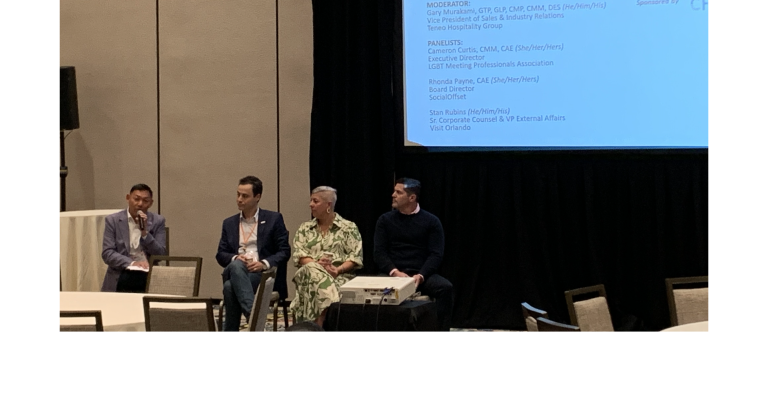Large association meetings are many things to their various stakeholders, but one thing they are not is easy to move once a destination has been chosen and contracts signed.
However, this has not stopped some groups from doing just that when a host city or state made a change to its laws that an association finds objectionable, or which could affect the well-being of its attendees. A couple of examples: The Association of periOperative Registered Nurses (AORN) decided in June 2023 to move its 2027 annual surgical conference and expo from Orlando to Philadelphia. The group cited political concerns when it canceled. Nicolette Sewell, an OCCC spokesperson, told MeetingsNet that “AORN 2027 had a signed lease agreement with Orange County Convention Center which has been canceled and settled between the parties.”
And in mid-2022, the American College of Obstetricians and Gynecologists canceled a plan to hold its 2023 annual clinical and scientific meeting in New Orleans because of a new Louisiana law that could bring punishment to those who provide, or even discuss, abortion care.
However, in a panel discussion during the recent IMEX America show in Las Vegas, both planners and suppliers suggested that there are better ways for associations and other meeting groups to have an impact on an issue without simply taking their money elsewhere.
First, “boycotts impact the wrong people in a destination,” said Cameron Curtis, CMM, CAE, executive director for LGBT Meeting Professionals Association. Specifically, hospitality workers are the ones who are immediately affected by lost business rather than executives and policymakers.
Next, said Curtis, “every state has laws that a significant number of an association’s member could find objectionable. But leaning in and taking a stance in a thoughtful and productive way ensures that the people in a destination who need to hear that message will hear it.”
Charles Bello, vice president of global accounts for ConferenceDirect, added that “there’s no better way for an association to leave a legacy in a destination than to show up strongly and do something that has tangible impact for an affected segment of society.” And a coordinated public-relations campaign ahead of the meeting could bring news coverage of the association’s actions, amplifying the message for local residents and elected leaders.
One entity that’s helping associations and other meeting groups connect with marginalized or affected segments of society is Social Offset. A nonprofit organization, Social Offset recommends local charities and other organizations in a destination that could benefit from financial contributions or volunteer labor from an association’s members.
Make Duty of Care Top of Mind
One complication that could arise when an association meets in a destination with a controversial law concerns the group’s ability to provide the expected duty of care for all attendees. For instance, Bello noted that in states where restrictive abortion laws have been passed, “prenatal care for pregnant attendees, speakers, exhibitors, and other participants is suddenly a crucial consideration,” not only because of reduced medical options but also because there might now be fewer such specialists serving that region. This MeetingsNet article goes deeper into the topic.
However, “when an event client says to me, ‘Do not consider that destination,’ I recommend that we first have a conversation with the convention and visitors bureau there and get all the relevant information,” Bello added. “We see if it is possible to partner with them and other local entities to take actions that would mitigate any potential negative effects on participants.” If that is the case, a group could then choose to meet in the destination and express its dissent in ways that are heard by local residents and their leaders.





